Sean Bean pictured in previously unseen Sheffield United fan photos
- Published
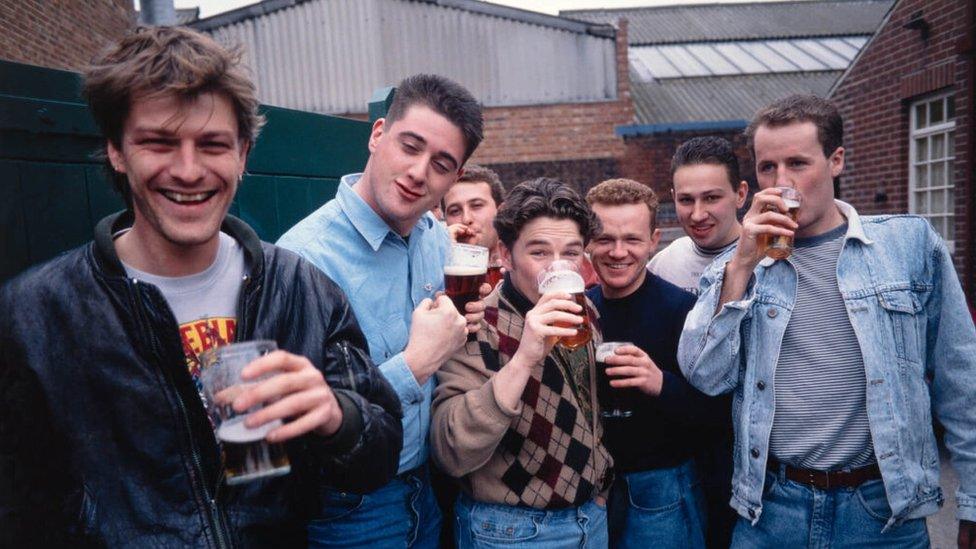
Actor and Sheffield United fan Sean Bean (left) and his friends outside the Sportsman pub on Denby Street
Bill Stephenson was a fine art student living a stone's throw from Bramall Lane when he was commissioned to take promotional photos for a 1990 BBC documentary United.
The cameras arrived in good time, capturing Sheffield United's promotion-winning 1989/90 season and the feel-good factor around the club's return to the old First Division.
Among those pictured was actor and Blades fan Sean Bean, who Stephenson, now 68 and retired from his career as a commercial and social documentary photographer, bumped into with his friends before a match.
"He was certainly well known at that time," said Stephenson, who later photographed Bean in the film When Saturday Comes.
"It was great to see him with his mates," added Stephenson.
"They weren't actors, they were just guys who worked in warehouses and were down to earth."
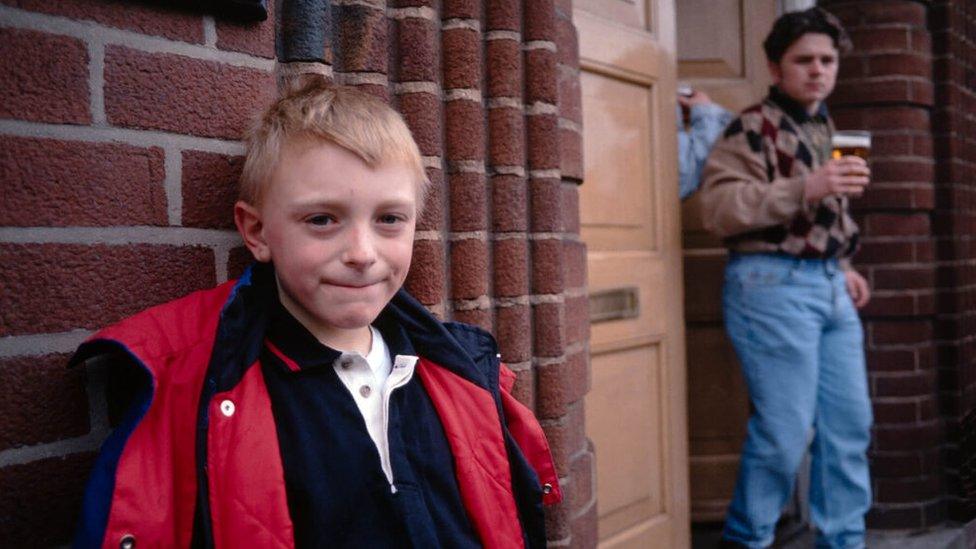
The Sportsman pub, which has since closed down, was where "everybody used to meet"
Bean and his friends had been drinking in the Sportsman pub on Denby Street when Stephenson came across them.
"That was the place where everybody used to meet," he said.
"I was well aware at the time of what a great community of people they were; the players, the management, everybody was extremely friendly."
"They were winning games, the fans were all behind them and it was a great atmosphere," added Stephenson.
"They were on the up and it was great to be around at that time."
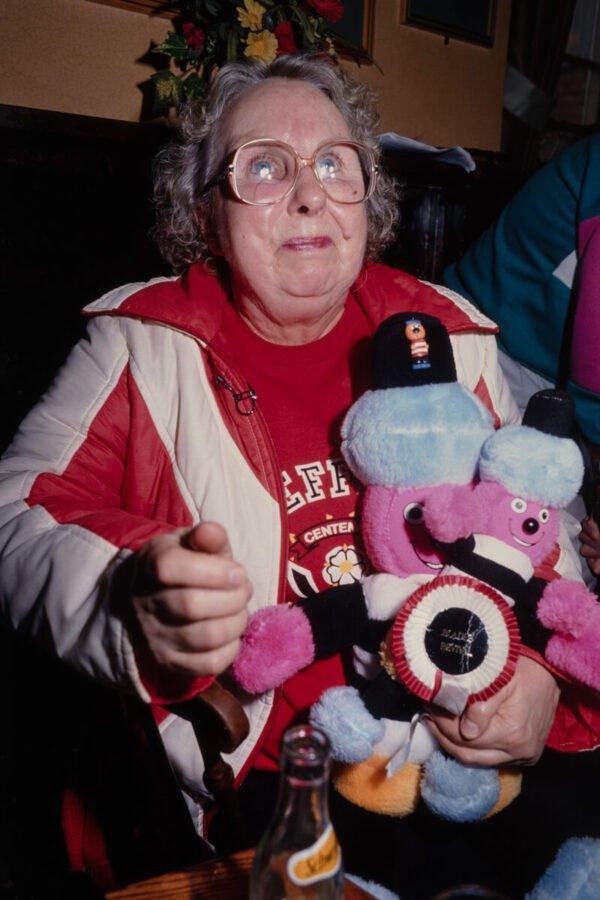
Winnie Royston holding a Bertie Bassett doll, presumed to be a nod to then Sheffield United manager Dave Bassett
Stephenson's house on Woodhead Road provided a perfect vantage point to see the Bramall Lane centre circle.
"I was able to watch the games through my bedroom window but I couldn't see the goalmouth," he said.
"I used to listen to the roar of the crowd and thousands of people going past."
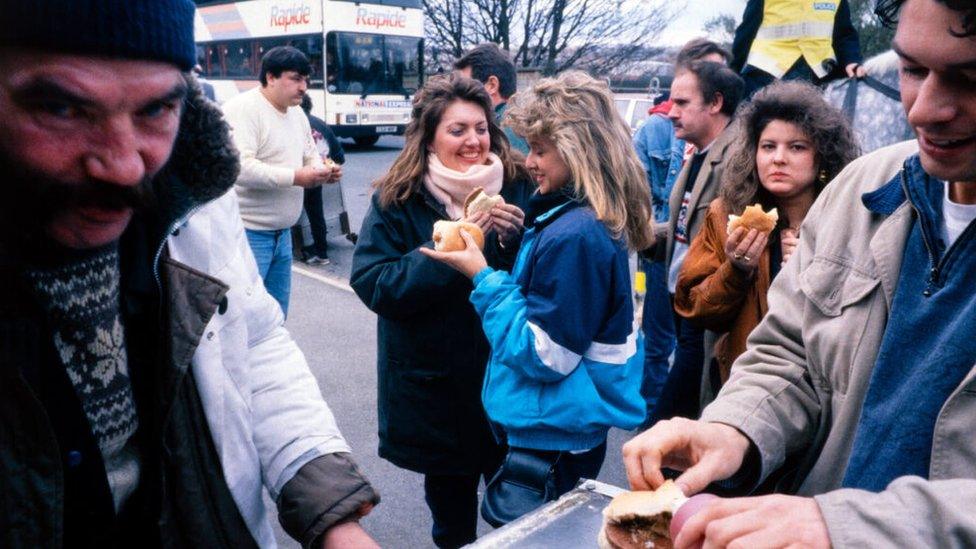
Bill Stephenson said: "Once you are a Blades supporter you can't get that out of your system"
Stephenson lived in the Highfield area for 20 years before moving to Earl Sterndale, near Buxton.
"I have always loved Sheffield United from living at the end of Woodhead Road," he said.
"I have followed them ever since."
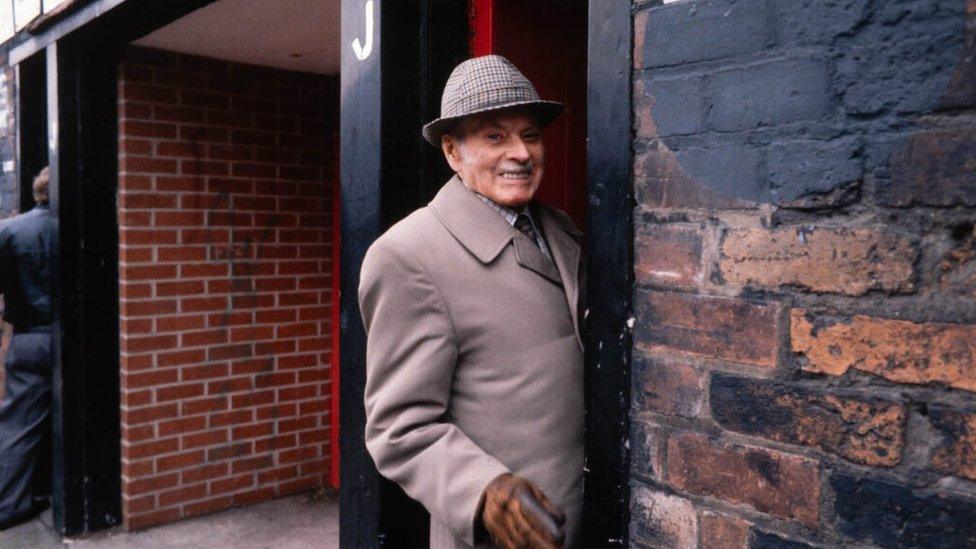
A season ticket holder entering the ground through an entrance on Bramall Lane
The wide-eyed photographer would often be allowed inside the team's dressing room, where he struck up a rapport with United captain Paul Stanncliffe in particular.
"What a friendly guy," said Stephenson.
"He was telling me about how he would relax before the games and I got to meet his wife.
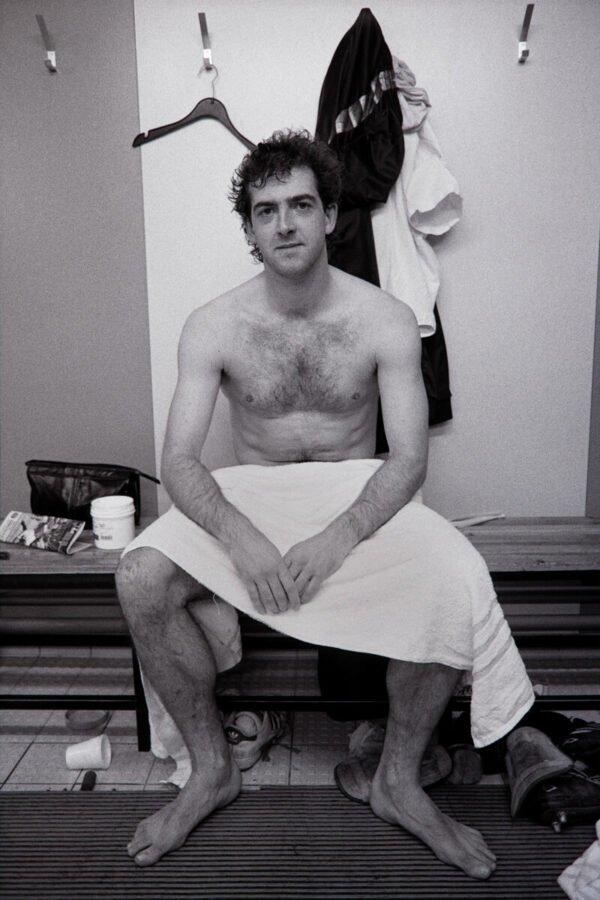
Central defender Stanncliffe captained the Blades to promotion
"Everybody was open and nobody was guarded at all about what they said.
"I was able to go into the changing room when the guys were all devastated after losing to Man United [in the FA Cup quarter-final] and everybody was happy for me to be there."
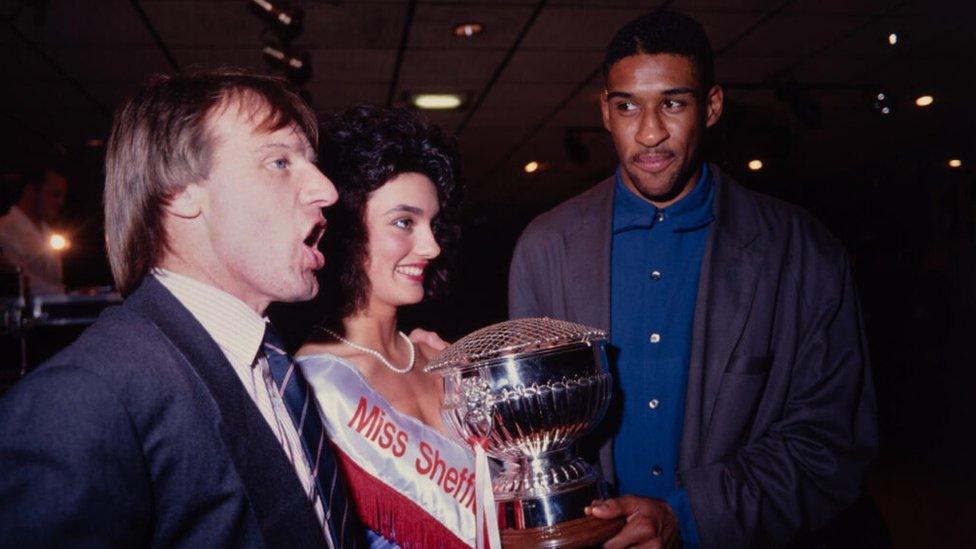
Miss Sheffield United contest winner Louise Bartells with her trophy, presented by manager Dave Bassett (L) and striker Brian Deane
Stephenson can still remember Dave Bassett's "bark" whenever he was unhappy.
"I must admit, the manager frightened me at times," he said.
"He used to tell them off at half time and treat them like they were little boys.
"They would sit there with their heads down."
Stephenson recalled one picture which he was particularly fond of.
"I like one of the pictures of a member of the Blades Business Crew with tattoos on his neck outside a police station," he said.
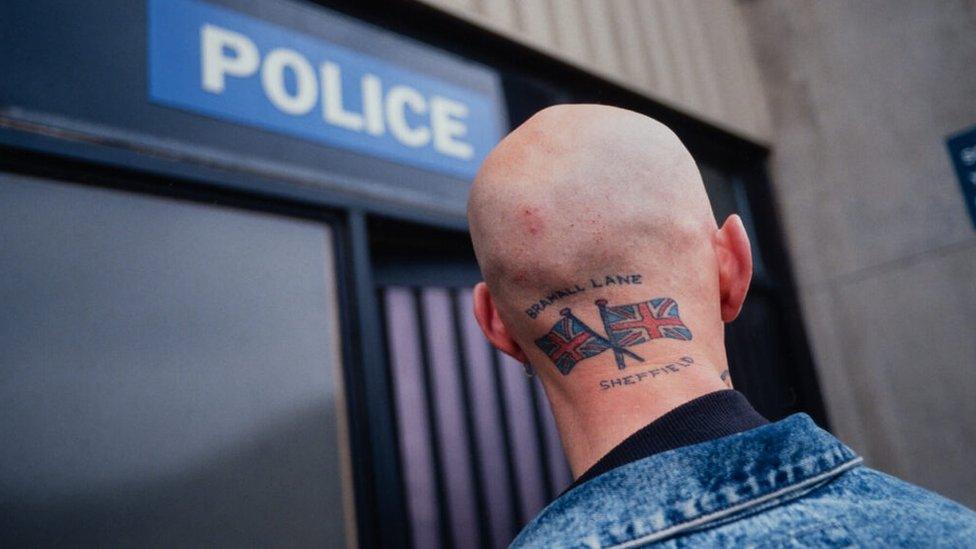
A member of the Blades Business Crew outside the Snig Hill police station
"It was all posturing, it wasn't pure evil. A lot of these pictures tell the story of various characters."
The Blades Business Crew, known as the BBC, was a group often linked to violence attached to the club.
Stephenson photographed almost everyone at the club from the players and staff to their partners and the club's apprentices.
Many of his pictures were left unseen until they were unearthed earlier this year when he moved his files online.
They have now been published by the British Culture Archive, external, which documents the changing face of British society and culture.
"They had been in a box for 33 years," said Stephenson.
"It's great that these once-contemporary pictures and stories have now taken on a historic context and they have a new life."

Follow BBC Yorkshire on Facebook, external, X (formerly Twitter), external and Instagram, external. Send your story ideas to yorkslincs.news@bbc.co.uk, external.
Related topics
- Attribution
- Published6 December 2023
